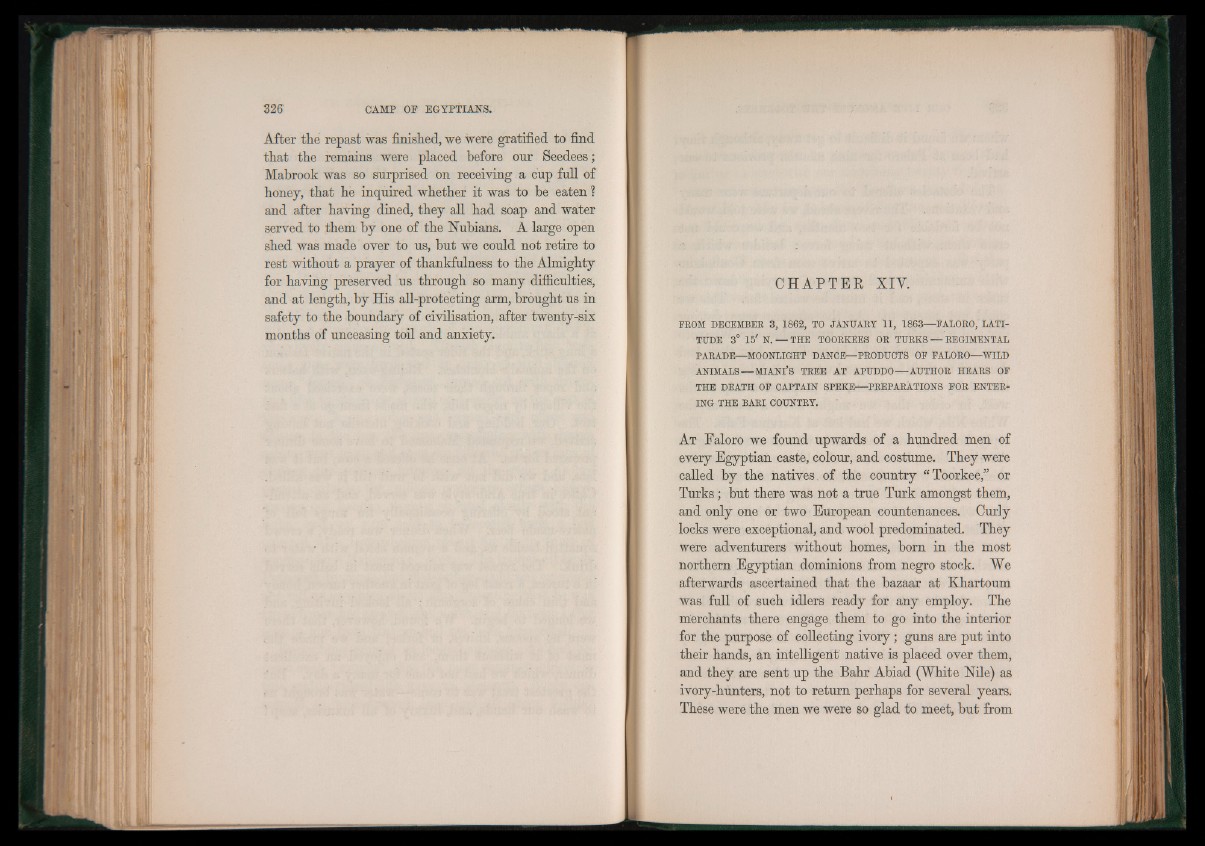
After the repast was finished, we were gratified to find
that the remains were placed before our Seedees;
Mabrook was so surprised on receiving a cup full of
honey, that he inquired whether it was to be eaten ?
and after having dined, they all had soap and water
served to them by one of the Nubians. A large open
shed was made over to us, but we could not retire to
rest without a prayer of thankfulness to the Almighty
for having preserved us through so many difficulties,
and at length, by His all-protecting arm, brought us in
safety to the boundary of civilisation, after twenty-six
months of unceasing toil and anxiety.
C H A P T E R XIY.
FROM DECEMBER 3, 1862, TO JANUARY 11, 1863— FALORO, LATITUDE
3° 15' N .— THE TOORKEES OR TURKS — REGIMENTAL
PARADE—MOONLIGHT DANCE—PRODUCTS OF FALORO—WILD
ANIMALS — MIANl’S TREE AT APUDDO— AUTHOR HEARS OF
THE DEATH OF CAPTAIN SPEKE— PREPARATIONS FOR ENTERING
THE BARI COUNTRY.
At Faloro we found upwards of a hundred men of
every Egyptian caste, colour, and costume. They were
called by the natives. of the country “ Toorkee,” or
Turks; but there was not a true Turk amongst them,
and only one or two European countenances. Curly
locks were exceptional, and wool predominated. They
were adventurers without homes, bom in the most
northern Egyptian dominions from negro stock. We
afterwards ascertained that the bazaar at Khartoum
was full of such idlers ready for any employ. The
merchants there engage them to go into the interior
for the purpose of collecting ivory; guns are put into
their hands, an intelligent native is placed over them,
and they are sent up the Bahr Abiad (White Nile) as
ivory-hunters, not to return perhaps for several years.
These were the men we were so glad to meet, but from